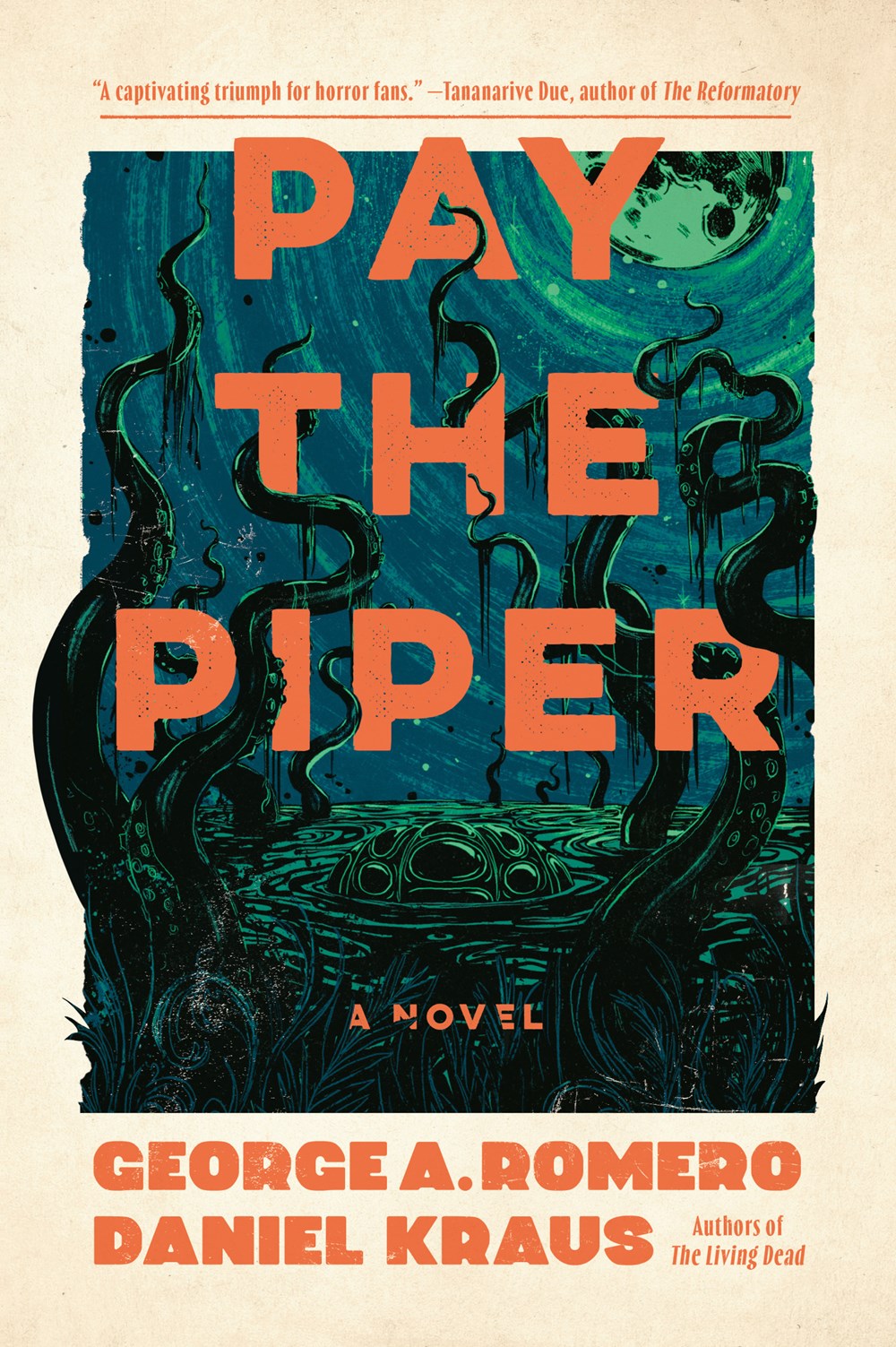“Sad Grownups” Explores What Sadness Says About Life

Table of contents
Rechercher dans ce blog
- janvier 202613
- décembre 202510
- novembre 20259
- octobre 202515
- septembre 202518
- août 202516
- juillet 202519
- juin 202515
- mai 202519
- avril 202515
- mars 202518
- février 202515
- janvier 202511
- décembre 202412
- novembre 202414
- octobre 202419
- septembre 202419
- août 202415
- juillet 202419
- juin 202418
- mai 202417
- avril 202418
- mars 202421
- février 202417
- janvier 202412
- décembre 202314
- novembre 202315
- octobre 202319
- septembre 202318
- août 202318
- juillet 202314
- juin 202317
- mai 202317
- avril 202311
Qui êtes-vous ?
 booksfaster
booksfaster
Table of contents
Recent in Technology
Social Justice Propels “Pay the Piper”
George Romero has one more tale from beyond the grave. Daniel Kraus pieced together 348 pages of the late Romero’s notes to create the novel Pay the Piper. Fans of Romero will get a tale of horror that merges Lovecraft with King’s It and Gaiman’s American Gods in a setting similar to Bon Temps in True Blood – except the lifeblood of this novel is social justice.
Admittedly, I am not the closest student of horror. However, I found the character development of the myriads of personalities that populate Alligator Point, Louisiana, impressive, even by literary standards. From the John Wayne-quoting sheriff, to the golden-voiced schoolteacher and the ornery town doctor, each character was distinct, with a past that created just the right amount of depth. Miss Ward’s only love was murdered years ago. Pity made the sheriff let the murderer go and the doctor would not keep the sheriff’s secret. These old wounds surface as they interact with one another. Alligator Point, too, provides a dark, living, watchful space where monsters could either be made or destroyed. It’s a perfect way to let every character (and readers, at times) feel as if they are being watched. I’d even call the moments of gore well-placed. And there are enough references to the golden age of film that time felt twisted.
Where this novel excels is where it points out the real, live monsters that plague small communities in coastal Louisiana. Kraus references Mike Tidwell’s Bayou Farewell: The Rich Life and Tragic Death of Louisiana’s Cajun Coast, which treats the plight of this region with genuine interest and respect. The alcoholism and drug addiction which Romero and Kraus name “nasty sugar” is on full display in this hopeless town. The oil man is a shrouded demon, never being able to be fully seen, but slowly stealing away residents with his promise of money. In one of the book’s final chapters these losses are inventoried:
There is no saving the bayous
The Houmas are nearly gone.
The Cajuns are nearly gone.
The oyster beds are nearly gone.
The shrimp and crab fishing are nearly gone.
The coasts will go next.
Even cancer, an epidemic in places like Louisiana’s “Cancer Alley,” terrorizes almost as much as the book’s god-monster.
And the many-named monster of Alligator Point is there for a very good reason. Kraus did his homework on the nefarious dealings of the pirate Lafitte brothers. Their shadowy involvement in slave trade is the basis of a multi-generational curse on the descendants of these pirates. The only way to break said curse is to “pay the piper” with sacrifice. This tale becomes a commentary on how the wounds of slavery are passed down. Juxtaposed against the other curses of oil men, addiction, and poverty, it shows how all reap bodies, but no monster can be conquered until it is faced, and atonement is made. Romero and Kraus start with a fun monster-fighting book set in the swamp. While they have us looking over our shoulders, they end with us looking within.
There are places where the book stumbles.The sexualization of a nine-year-old main character is cringeworthy. When the pint-sized protagonist faces the Piper for the first time, it comes in the form of her third grade teacher wearing “nothing but a gauzy robe,” touching herself provocatively. It changes the little one’s blush to “a different warmth, a new tingle.” What trips me up most is the cadence of the writing itself. I was left wondering if this is what people outside of Louisiana feel like when listening to the sing-song intonations in native Cajun patois. Several pages of exposition with invented vocabulary race by before breaking quickly into dialogue about the current moment, the conversations mundane at times. It took me until the forty-page mark to grasp the storytelling. This could have been an effect of having two authors.
If monster horror is the characterization of evil, it is also the reflection of our greatest good. Most horror I’ve encountered extols virtues and promotes hope. Pay the Piper is no exception. The giant tentacles of the octopus god the characters face down at the end hold up mirrors before asking, “WHAT ARE YOUR CONVICTIONS?” Accountability, with destruction as the consequence should we not fulfill it, is the cautionary tale with the possibility of a hopeful resolution we crave. While there may be no future left for many in Alligator Point, the authors still think we can make something of ours. In the same chapter which laments what Louisiana is losing, Romero and Kraus write:
But there is a chance.
If people move fast enough.
If they can work together.
If they can do the right thing.

FICTION
Pay the Piper
By George A. Romero and Daniel Kraus
Union Square & Co.
Published September 3, 2024
People
Most Popular
Haunting Realities in “Human Sacrifices”
“The Wind Will” Sweep Up Readers
Tags
Categories
Ad Code
Popular Post
“Sad Grownups” Explores What Sadness Says About Life




0 Commentaires